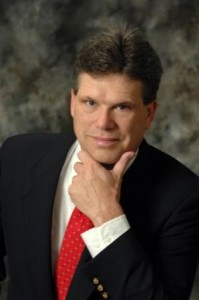A Woman’s Choice, our local Christian pregnancy center, which helps women with what we normally call crisis pregnancies, provides for both material and spiritual needs. Last night, the center had its annual fundraising dinner—and it was truly a special event.
 The speaker was Scott Klusendorf, a lecturer on bioethics who debates on university campuses and other venues, showing the validity of the pro-life position, morally and scientifically. I had never heard him speak before, so I didn’t know quite what to expect, but I have to say he exceeded my expectations. Mixing humor and poignant anecdotes with rock solid logic, Klusendorf made an effective case for the unborn, which I hope inspired many in the audience to become more vocal on their behalf.
The speaker was Scott Klusendorf, a lecturer on bioethics who debates on university campuses and other venues, showing the validity of the pro-life position, morally and scientifically. I had never heard him speak before, so I didn’t know quite what to expect, but I have to say he exceeded my expectations. Mixing humor and poignant anecdotes with rock solid logic, Klusendorf made an effective case for the unborn, which I hope inspired many in the audience to become more vocal on their behalf.
His message began with the question, “Is truth true?” In other words, is there a real truth that exists objectively or are all things relative? He related an encounter he had with a woman who said that while she didn’t believe in abortion, she was glad the laws allowed it because she didn’t feel comfortable imposing her views. This is a common rationale for many people. Klusendorf asked her why she didn’t believe in abortion. Her answer? She thought it killed children. He further pressed her: if you believe it kills children and you are glad the law allows abortion, doesn’t that mean you are glad that children are killed? To her credit, she saw the logic of his position.
He then asked the audience “What gives us value?” Apart from being a creation of God, there is no definitive answer to that, but being made in the image of God the Creator supplies the best reason why each individual life is inherently valuable.
Once that was established, he urged us to consider the next step: “What then is the unborn? Is it a human being or not?” That, he insisted, was the foundational question that had to be answered before anyone could logically proceed further on the topic of abortion. If that unborn child is not human, then abortion is permissable, but if that is truly a human being made in the image of God, abortion then becomes outright murder. The science of embryology, he explained, has firmly established that an embryo, even at its earliest stage of development, is a separate, complete being. Everything develops in that embyro from within because it is “complete.”
Finally, he challenged us to ask “What is our duty?” It is twofold: first, to love our unborn neighbor [interesting use of the term]; second, to love the mother of that unborn neighbor, not only by showing God’s love through material provision, but by leading that mother into an understanding of the grace of God and the newness of life He offers.
That’s a brief overview, and it hardly does justice to the impact of his message, but I hope it gives at least a flavor of the evening and why I consider it exceptional.
As Jesus noted, “I came that they may have life, and have it abundantly.”
